‘Summer of Soul’ celebrates a forgotten cultural breakthrough
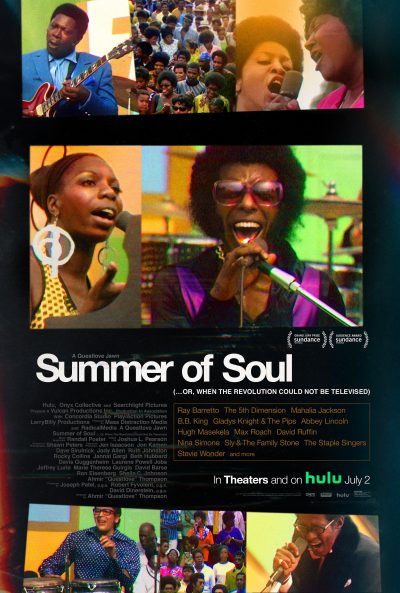
“Summer of Soul (…Or, When the Revolution Could Not Be Televised)” (2021). Cast: Interviews: Stevie Wonder, Gladys Knight, Marilyn McCoo, Billy Davis Jr., Mavis Staples, Chris Rock, Charlayne Hunter-Gault, Jesse Jackson, Lin-Manuel Miranda, Sheila E., Greg Tate. Performance Archive Footage: Stevie Wonder, Nina Simone, B.B. King, the Staples Singers, Sly & the Family Stone, the 5th Dimension, Gladys Knight & the Pips, the Chambers Brothers, David Ruffin, Hugh Masekela, Mahalia Jackson, Abbey Lincoln, Max Roach, Ray Barretto, the Edwin Hawkins Singers, Mongo Santamaria, Moms Mabley, Willie Tyler & Lester. Other Archive Footage: Tony Lawrence, John Lindsay, Jesse Jackson. Director: Ahmir-Khalib “Questlove” Thompson. Web site. Trailer.
It’s sad when a milestone event fades into obscurity. When one examines the impact it had at the time of its staging, one would hope that such a legacy would be sustained. However, those who remember the event carry the spirit of its impact within them, and, with a little help, it just might be possible to bring it back to life and celebrate the breakthrough it represented. Such is the case with the entertaining and uplifting new music documentary, “Summer of Soul (…Or, When the Revolution Could Not Be Televised).”
As America headed into the summer of 1969, the nation was holding its breath, worried what might unfold. In recent years, the country had become tense and divided over a variety of events – contentious race relations, riots in the streets, the unpopular Vietnam War, and distress over a wave of assassinations, including the Kennedy brothers, Malcolm X and Dr. Martin Luther King Jr. The year before in particular had been a difficult one, with fallout from the foregoing, as well as the violent demonstrations that took place at the 1968 Democratic National Convention in Chicago. So, needless to say, there was considerable worry over what would be next, especially in the nation’s major cities.
A number of civic and political leaders believed it was important to find ways to dissipate the energy that had been building and could potentially be unleashed in undesirable ways. And, in New York, the largest city in the US, that issue was addressed by a plan to give residents a healthy means for doing just that – a festival that would provide them with some much-needed enjoyment, the Harlem Cultural Festival.
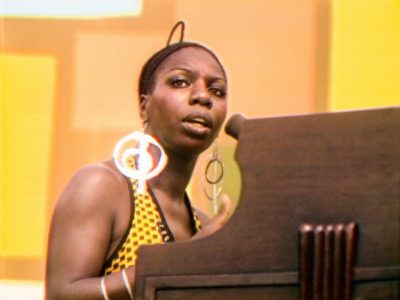
The festival was organized by performer/promoter Tony Lawrence, who had quite a knack for bringing people together to stage successful events. In this case, he worked with the City of New York, enlisting the support of Mayor John Lindsay. The program was held in New York’s Mt. Morris Park (now Marcus Garvey Park) over six weekends from June to August and featured an array of Black and Latino music, comedy and culture with a lineup that had never been assembled before – or since.
Even though smaller versions of the festival had been held in previous summers, those earlier events were nowhere close in scale to this undertaking. Given the size of the crowd – estimated at approximately 300,000 attendees – the festival was compared to another event taking place that summer about 100 miles away, earning this event the nickname “the Black Woodstock.” And, because of the festival’s anticipated magnitude, it was decided beforehand that it should be documented. So, like Woodstock, the event was filmed, in this case under the coordination of TV veteran Hal Tulchin and backed by the healthy financial support of General Foods.
The festival was a resounding success. It included musical performances by the likes of Stevie Wonder, Nina Simone, B.B. King, the Staples Singers, Sly & the Family Stone, the 5th Dimension, Gladys Knight & the Pips, the Chambers Brothers, David Ruffin, Hugh Masekela, Mahalia Jackson, Abbey Lincoln, Max Roach, Ray Barretto, the Edwin Hawkins Singers and Mongo Santamaria, as well as the comedy of comic Moms Mabley and ventriloquist Willie Tyler & Lester, to name a few. In addition to the entertainment, the event was a showcase for Black culture, particularly in the area of fashion.
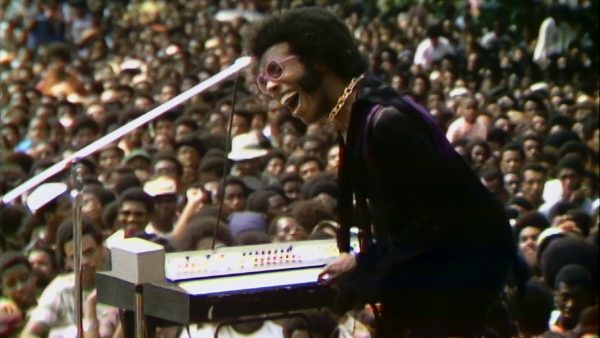
But the event was significant for other reasons. It was a venue for ushering in social change, bringing together elements of the established civil rights movement and the emerging Black Power movement. The African-American community was now being encouraged to express itself rather than just look for ways to fit in. This was important given that the country was now under the leadership of recently elected President Richard Nixon, who was widely perceived as unsympathetic to the concerns of racial minorities. The festival also provided an opportunity to pay homage to slain civil rights activist Martin Luther King through a moving tribute led by Rev. Jesse Jackson featuring a tearful rendition of the leader’s favorite work of music performed by Mahalia Jackson and Mavis Staples.
Considering the success of the event, the promoters and documentarians were eager to find an outlet for the footage that was filmed at the six weekend concerts. Unfortunately, except for two one-hour specials broadcast shortly after the event on New York’s WNEW Channel 5 (now a FOX affiliate), there were no takers; all of the programmers that were approached said they didn’t envision any interest in a Black Woodstock movie or television special. None. At. All.
In hindsight, it’s almost inconceivable to believe that this could be the case. However, that’s what happened, and so the 40 hours of footage sat in Tulchin’s basement, unscreened or untelevised anywhere, for the next 50 years. And, because the footage never surfaced, the event itself was almost completely forgotten.
Almost.
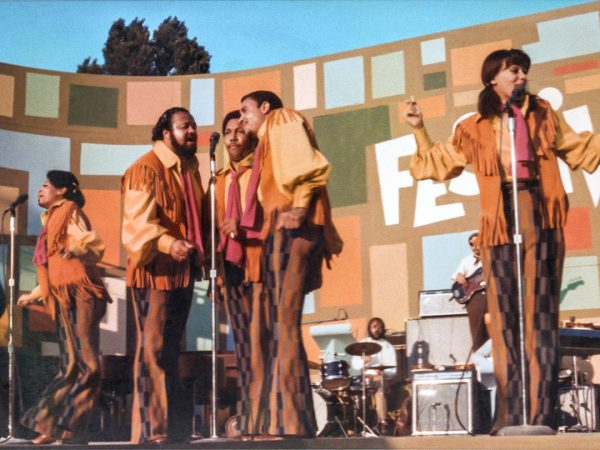
Thanks to the efforts of director Ahmir-Khalib “Questlove” Thompson, writer Robert Fyvolent and a dedicated production team, the festival has now come back to life. The concert footage, which was recoded on high-grade two-inch videotape, enabled the material to be remarkably well preserved. This wealth of documentation thus provided the filmmakers with considerable fodder for making this superb film.
To augment the concert material, Thompson has incorporated numerous interviews, including many who attended the event, as well as some of those who performed or knew the organizers. Commentary into the significance and context of the festival is presented through additional interviews, including actor/comedian Chris Rock, journalist Charlayne Hunter-Gault, entertainer/composer Lin-Manuel Miranda, musician/producer Sheila E. and writer/musician/producer Greg Tate. These insights help to resurrect and illuminate a seminal event in a watershed moment for the African-American community, one that brought it to a level of prominence not previously enjoyed – and one that we can now enjoy again through the music that helped inspire it.
It’s always something to see when individuals or collaboratives come up with solutions to address potential problems by employing innovative qualities. In looking back to 1969, when the threat of a summer of violence loomed, it was indeed a brilliant move when the organizers of the Harlem Cultural Festival came up with the idea for their event. They saw an issue on the horizon and managed to find an outlet to defuse the energy building behind it – and one that provided a good time for those who attended. That’s a win/win for everyone.
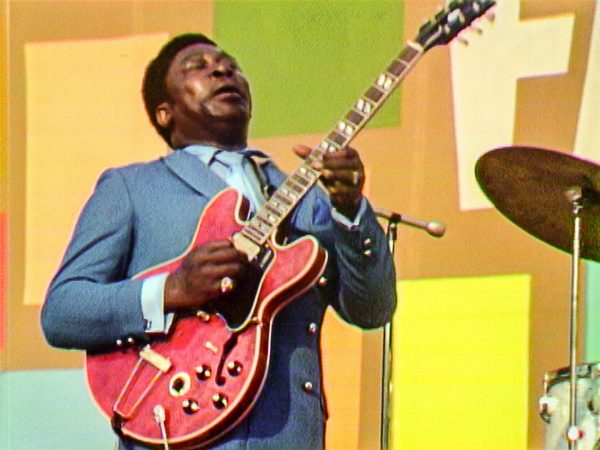
What made the event and its outcome possible was a belief that it could be done, and therein lies the crux of its success, for our beliefs are what shape the reality we experience. Such is the essence of the conscious creation process, the philosophy that maintains we manifest the existence around us through the power of our thoughts, beliefs and intents. And, considering what resulted, there were some potent beliefs at work in making this all possible.
It’s especially important to note that the concept of the festival represented some significant thinking outside the box. Officials could have sat back and waited with baited breath to see what might happen. Or they could have chosen a more proactive stance, one in which they sought to cut off problems before they arose. And the fact that it was done in such a remarkably creative and uplifting way really helped to set it apart from more conventional solutions. By surpassing limitations and trying the untried, organizers managed to stave off the problems that worried them and produce an entertaining, inspiring and enjoyable time for all involved.
Clearly this was a remarkable act of co-creation, one in which multiple parties came together to accomplish a tremendous goal. Everyone concerned believed the result was attainable, and everyone played his or her part to make it happen. All of the parties involved were wise to place their trust in the skillful hands of those accomplished at pulling off programs like this, namely, promoter Tony Lawrence, documentarian Hal Tulchin and New York Mayor John Lindsay. Even when snags came up, such as the possibility of inadequate security for the event, planners got creative in their thinking and came up with a creative solution – augment New York Police forces with members of the Black Panther Party. Together the joint forces kept matters from getting out of hand, proving that even allegedly opposing forces could work in tandem for a common good.
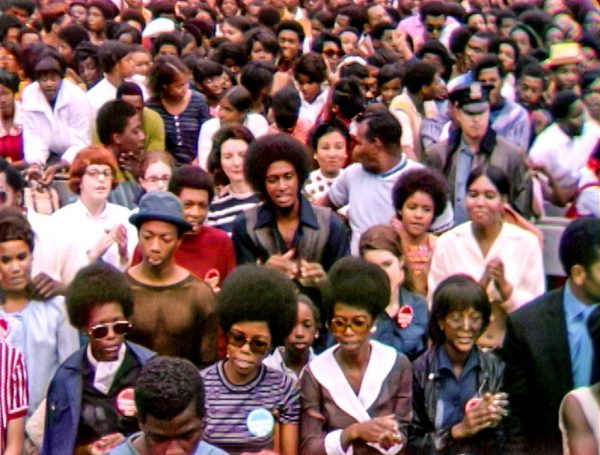
Fifty years after the event, such inspired collaboration surfaced once again in the making of this film. The various parties responsible for bringing it into being helped to resurrect the memory of a truly astounding event. Even though the festival may have been largely forgotten and overshadowed by its upstate musical counterpart, it genuinely was an event worth remembering, and those involved in this documentary project made that happen. The rarely seen performances can again be enjoyed, and later-born generations can witness the impact it had on the Black and Latino communities.
That, if anything, is arguably the greatest legacy to come out of this event. It played a pivotal role in encouraging empowerment among its constituencies. It brought Black and African culture to a prominent (and previously seldom seen) center stage. It gave its people an opportunity to freely express themselves without restriction and to make their voices heard – not just on the concert stage but in American culture at large. And, even though the festival may not have finished the job, it helped light the match that got it going, a flame that burns to this day and one whose stoking is made possible by this film, providing us all with an eloquent and powerful record of its origin.
Director Thompson is to be commended for assembling an extraordinary selection of musical performances and providing viewers with context for the significance of this event. The film is thus more than just an entertainment vehicle; it’s a time capsule into the period, examining the impact that the summer of 1969 had on Black culture, activism and empowerment. The project is a tribute to the festival and the times, while simultaneously reawakening us to issues that still deserve attention all these many years later, pointedly reminding us that those who do not learn from history are destined to repeat it – and that we had all better be listening to more than just the music. The film is currently playing in theaters and on the Hulu streaming service.
To some, the contention that a music festival could play an important role in helping to shape the culture of a people or a nation may seem overblown. But, when one realizes that the 1960s are often characterized as “the Woodstock generation,” that notion might quickly be dispelled. So it is also with that event’s African-American counterpart. It may not have received the same degree of notoriety, but that doesn’t mean it didn’t have an effect, either. And now, with this film, a new generation of audiences has an opportunity to see what influence it had and how it has percolated down through the years, even if the event itself was not always cited as the source of this development. Here’s hoping we get it right this time and remember the Harlem Cultural Festival for what it was – a groundbreaking event that helped to reshape us as a society hoping for the better.
Copyright © 2021, by Brent Marchant. All rights reserved.



